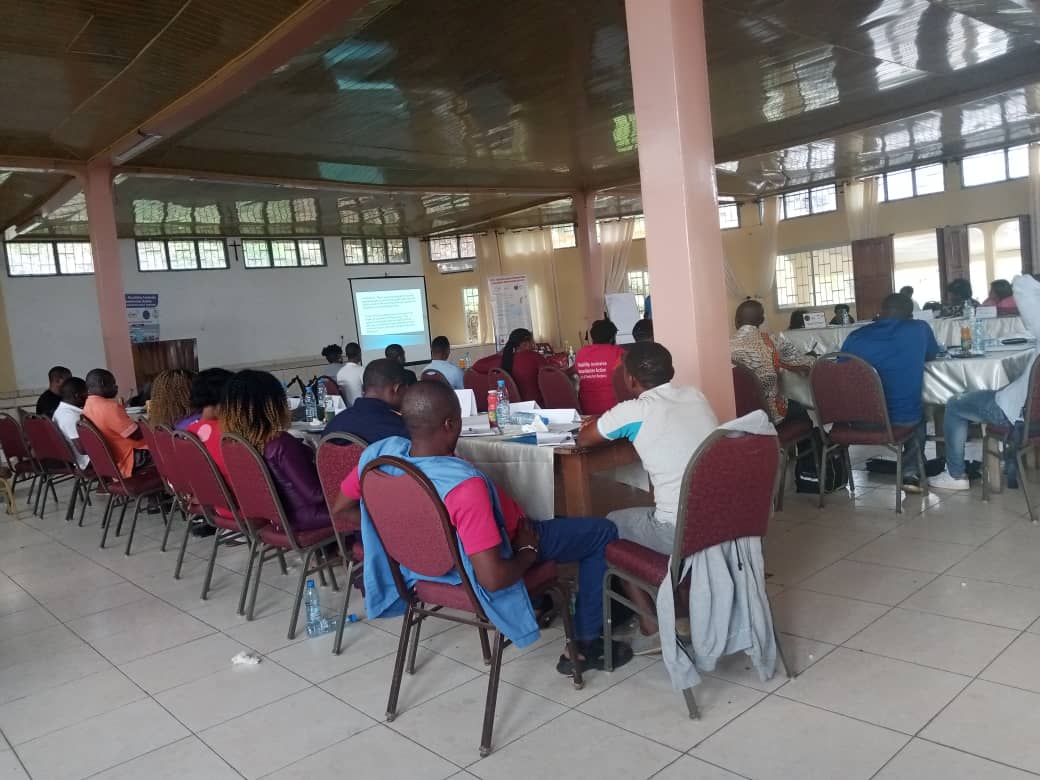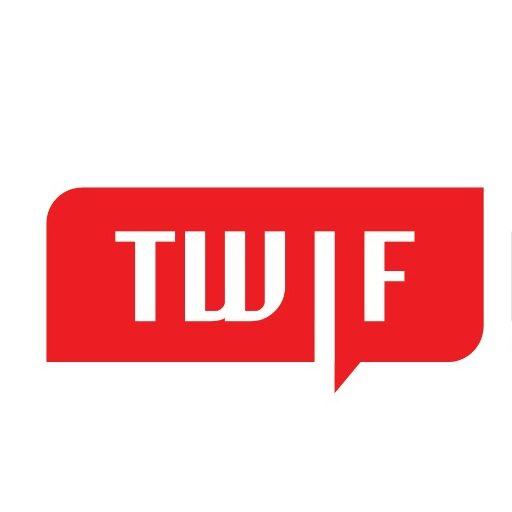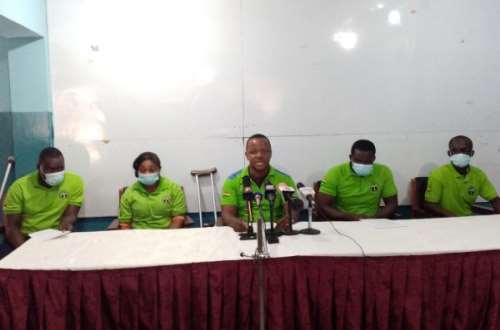[vc_row][vc_column][vc_column_text]
Education has been one of the most affected sectors in Cameroon, since the outset of the ongoing Anglophone secessionist conflict in 2016.
It is against this backdrop that five Anglophone teachers’ trade unions, in a recent communiqué, jointly expressed disdain over the persecution of students and teachers, by belligerents of the deadly armed conflict.
The leaders of CATU, CEWOTU, PEATTU, BATTUC and TAC condemned what they termed as horrible afflictions, manifested through wanton kidnappings, torture, callous killings and decapitation.
“We cannot continue to stay mute in the face of these heinous acts. We therefore join our voices to those of all persons of decent breeding to condemn all acts that undermine basic rights and human dignity,” the release read in part.
The trade unionists, frustrated at the dire situation in Anglophone Cameroon, called on the warring factions to give peace a chance, stressing that education is the springboard for any form of development.
“School boycott as a grievance-expressing measure cannot go on ad infinitum,” they further stated.
Anglophone separatist fighters had imposed a boycott on schools in the NorthWest and South West regions. They have since 2017, continued to target students and teachers who have defied the ban.
These separatists have kidnapped, tortured and asked for ransom for the release of some of their victims still pursuing education.
During a Bamenda convention on August 28, the teachers’ representatives regretted the fact that 311 students and 164 teachers were either attacked, kidnapped or tortured in the last two academic years.
Meantime, they frowned that 2 students and 64 teachers died in the same time frame.
They however failed to mention those involved in these acts, but the actions are akin to those of Anglophone separatists.
The teachers also called on the military to exercise restraint in their actions. Many have accused Cameroonian troops of violence against the civilian population.
In 2016, Anglophone teachers, in a sit-in strike called on the government to promote technical education, withdraw francophone teachers from Anglophone schools and for a return to a two-state federal system as a cine qua non to preserve the Anglophone educational heritage.
The teachers are now calling on the warring actors to allow schools to resume, so they can assess the implementation of some measures taken to address the worries raised four years ago.
Reacting on the grounding of schools across Anglophone Cameroon, Ambazonian activist, Mark Bareta, stated on social media recently that they were not against school resumption.
“The Southern Cameroons liberation struggle is not about school boycott anymore. That phase of the resistance is over. Southern Cameroonians are not against children going to school,” he said.
It is left to be seen if an enabling environment would be created for students to effectively return to school during the 2020/2021 academic following four years of deadlock.
For Advertisement and other information, contact TWIFF News through +237674667038.
[/vc_column_text][/vc_column][/vc_row]




















